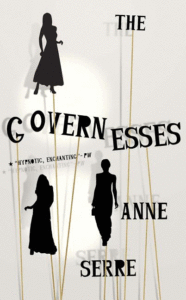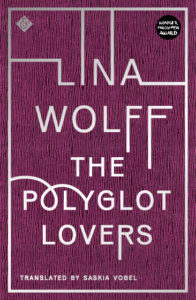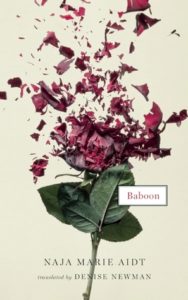
Dear Reader,
Valentine’s Day is just around the corner, and I’ve been thinking a lot about us. I realize we’ve only known each other for a few months, but it feels like we’ve been through a lot together. Okay, so maybe some of it has been a little strange—or even frightening—but we’ve come out of it fine. Right? Anyway. I know it might seem like I’m getting ahead of myself… but I really love this holiday. I mean, it has everything. Ritualized sentimentality! Rampant consumerism! Conversation Hearts! From the anodyne CUTIE PIE to the perplexing BE COOL via the bone-chilling BE MINE, those of us who hate having to choose between a candy and an antacid wait all year for these babies to hit the shelves (as I write, dear reader, my teeth are flecked lavender and a delicate chalky crust has begun to form at the corners of my mouth).
Though couples—who get to take every minor contretemps for one of the four horsemen of a relationship apocalypse—undeniably have the sweeter deal, singles don’t have to feel left out. It’s an ideal opportunity for us to reflect on our life choices as we sit alone on the couch, casting furtive glances at the rose petals fluttering earthward outside our window and wondering which fruit the florescent pink filling in our box of drugstore chocolates is meant to suggest. Razzleberry, anyone?
So. In honor of Saint Valentine, I made you a little list of tainted loves. And a mix. I made you a mix. (Track list below.)
YOURS, h.
*

The Governesses by Anne Serre
Translated from the French by Mark Hutchinson
New Directions (September 2018)
A rollicking, not-suitable-for-work fable about three young governesses not particularly well suited to work. In the course of just over a hundred pages, Anne Serre takes on one of the mainstays of Victorian literature: the eroticized tabula rasa of the young governess who hovers, slim-waisted and beholden, somewhere between the world of her wards and that of her employer. The operation Serre performs on this figure is far more complex, and far more satisfying, than a simple inversion of gendered power dynamics: in Hutchinson’s taut English, the text quivers with a delectable, subtle tension from start to finish. This is a narrative that offers many pleasures and refuses to resolve its contradictions. The estate grounds on which Laura, Eléonore, and Inès run wild, impaling themselves on their sexual prey with an animal innocence that is judged “obscene” but “not disgraceful,” is at once a Garden of Eden and a downy burrow of iniquity; their frenetic sexuality is liberated and, at the same time, shrouded by the patriarchal haze given off by Monsieur Austeur’s “silky long cigars,” which orders their collective life. Though hunters in their own right, these young women are shaped and, quite literally, sustained by the male gaze. I devoured this one in a single sitting and was immediately seized by the urge to start in on it all over again.
Double take: Parul Sehgal on this “John Waters sex farce told with the tact and formality of a classic French fairy tale” for the New York Times.

The Polyglot Lovers by Lina Wolff
Translated from the Swedish by Saskia Vogel
And Other Stories (April 2019)
Keep an eye out for this one: The Polyglot Lovers is one of those rare birds that is both smart as hell and, in the parlance of our times, “pace-y.” As in her acclaimed first novel, Bret Easton Ellis and Other Dogs (tr. Frank Perry), Lina Wolff shows herself to be a “furiously irreverent writer determined to tip every conceivable power structure on its head” (via), this time taking aim at “the edifice of male genius” (PW). After a string of “regular guys”—the high-school sweetheart who taught her to “fight like a motherfucker,” the raging alcoholic she lived with in Copenhagen, et al.—thirty-six-year-old Ellinor decides to explore the world of Internet dating, where she meets literary critic Ruben Rondas. On their first date, he shows her the sole copy of a manuscript written by an author he admires (the page proffered contains a ham-handed and utterly self-serious description of the difference between “male” and “female” madness); the date takes an unpleasant turn and Ellinor burns said manuscript in revenge. And then the real fun begins. This book won’t be out until April, but anticipation just adds a bit of spice.
Double take: They’re already excited over at Publishers Weekly.
Not One Day by Anne Garréta
Translated from the French by Emma Ramadan
Deep Vellum (April 2017)
According to Anne Garréta, card-carrying Oulipian and recipient of the prestigious Prix Médicis for this very novel, Not One Day was composed according to a set of rules (only one of which was “scrupulously enforced”) meant to free herself from her writerly habits, to “keep at bay a little longer, if you can, who you think you are.” The conceit is deceptively simple: for five hours each day for one month, she is to write about the memory of a past lover. Rinse, repeat. What is so extraordinary about Garréta’s take on the confessional is the way her formidable intellect braids eros and philosophy together: the women are (di)splayed in alphabetically-ordered vignettes written—and translated—with breathtaking precision and bite. The lovers, for the most part, slip intentionally out of focus, but the desire (or in some cases, the lack thereof) that drives each encounter is always drawn with the clearest of lines. It is ultimately this desire, and the act of remembering, itself, that seem to be the true protagonists of this indispensable, bracing parade. From B*, with her “sensual proclivity for analysis,” to D*, a “typically desirable woman, you saw her in and through the eyes of others,” and H*, “a siren fastened to her chosen rock,” the accumulation pushes us toward the conclusion that the discovery of the other is always also, or perhaps only, a discovery of oneself.
Double take: Sam Allingham for Full Stop.

Baboon by Naja Marie Aidt
Translated from the Danish by Denise Newman
Two Lines Press (October 2014)
With this riveting collection of stories, Naja Marie Aidt charges in where most would fear to tread. Aidt is masterful at conveying the sense of repulsion that is the shadow side of physical longing and the knottiest of family ties: “Their names sit like two awls in my main artery: If someone pulled them out, I’d bleed to death in a flash” (“Bulbjerg”). Children are cruel to their peers; mothers are cruel to their offspring; lovers are cruel, in equal measure, to themselves and to their beloveds. No one is spared, but there is also the sweeter side of desire, even love, here. Given the sustained intensity of the collection, it is much to Aidt’s credit (and to Denise Newman’s, who gives us these morsels in razor-sharp English) that the spinning figures in this kaleidoscope of brutality maintain their sharp edges throughout, and that the experiences Baboon depicts manage to be at once completely strange and completely familiar. It’s no surprise that the collection earned her the Danish Critic’s Prize for Literature, the Nordic Council Literature Prize, and a PEN Translation Prize, among other honors. If you like this one, Open Letter published Aidt’s Rock, Paper, Scissors the following year, and this fall Coffee House will be bringing out a new translation, written in a very different vein but with the same luminous intelligence.
Double take: K.C. Mead-Brewer for Cleaver.
* * *
The Police, “Don’t Stand So Close To Me”
Björk, “Human Behavior”
Joy Division, “Love Will Tear Us Apart”
LCD Soundsystem, “I Can Change”
Lizzo, “Truth Hurts”
Tremenda Jauría et al, “Tú no eres mi papi”
The Modern Lovers, “Pablo Picasso”
7 Year Bitch, “Kiss My Ass Goodbye”
Blondie, “Heart of Glass”
TV On The Radio, “Happy Idiot”
IDLES, “Love Song”
St. Vincent, “Fast Slow Disco”
Kelis, “Mafia”
Bill Withers, “Who Is He (And What Is He To You)?”
Sailorfag, “Amiga date cuenta”
Santigold, “Don’t Blame Me”
Childbirth, “Siri, Open Tinder”
Robyn, “Dancing On My Own”
La Cosa Mostra, “La puñalada”
The Smiths, “Girlfriend In a Coma”
Serge Gainsbourg + Jane Birkin, “Je t’aime moi non plus”

